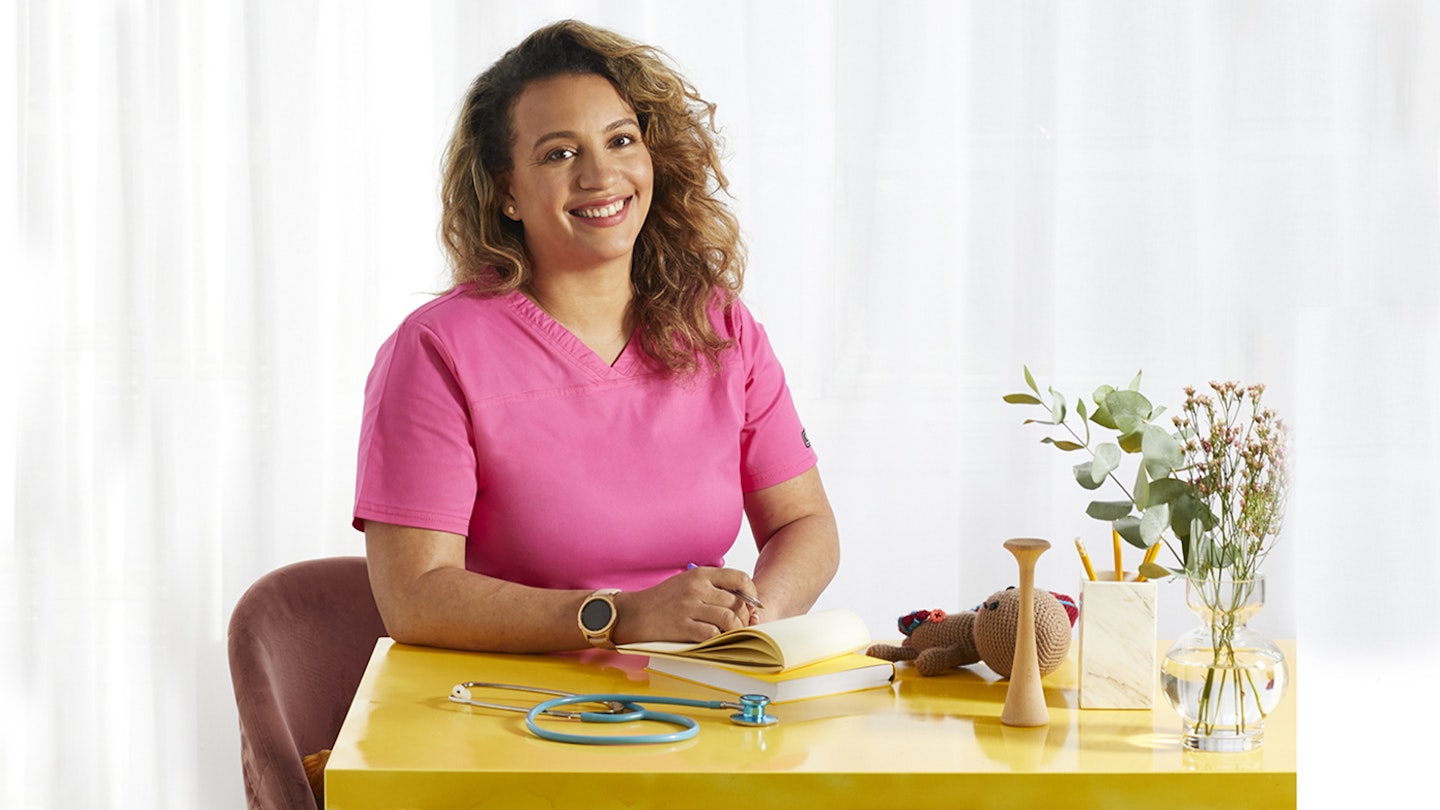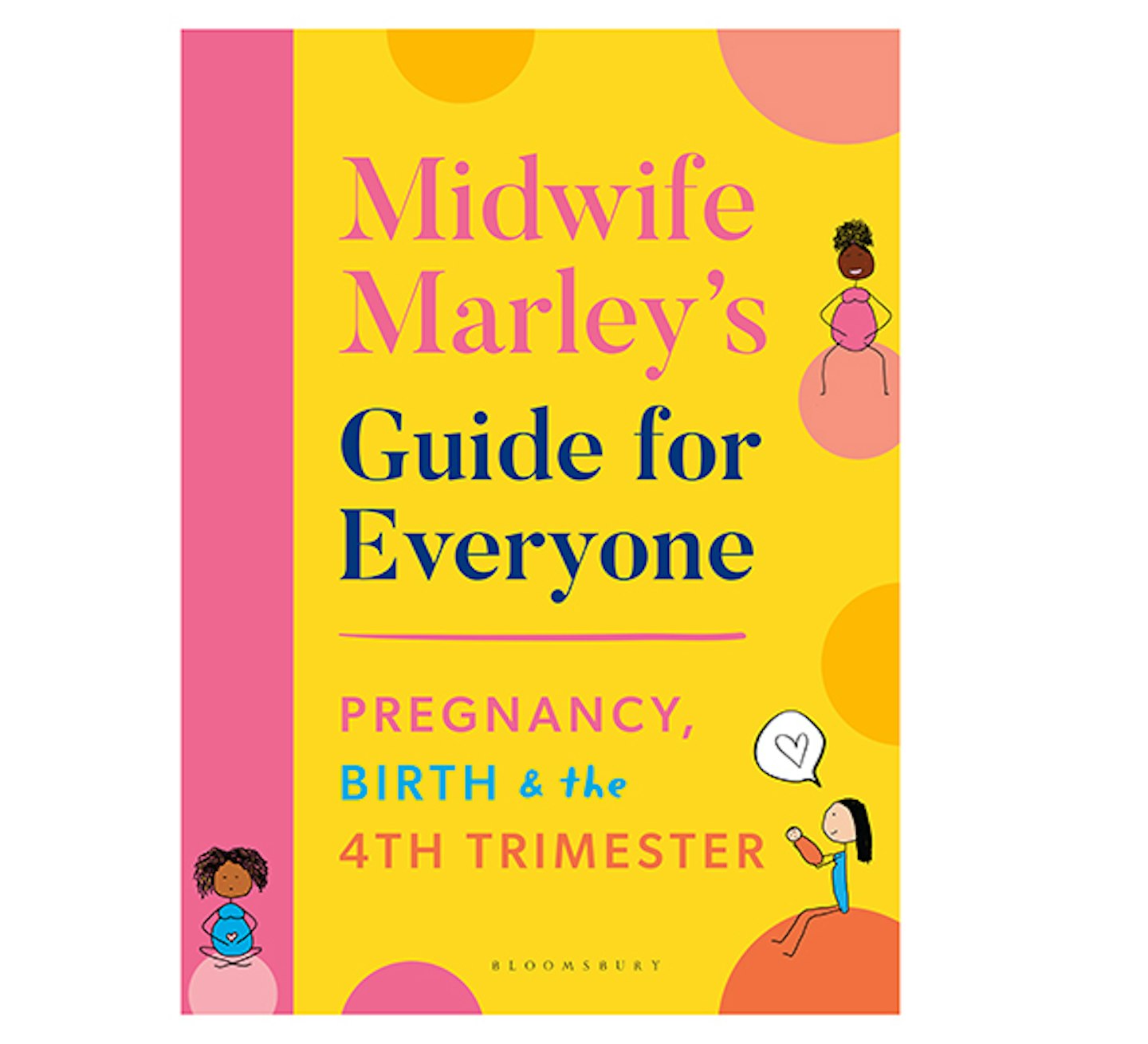Midwife Marley Hall is passionate about giving new parents the tools to approach pregnancy, birth and the fourth trimester (the 12-week period directly after giving birth). You may know Marley as @midwifemarley, or have seen her fun yet informative doodles on your Instagram feed.
She's been a midwife for over 13 years and we're very excited that she has now published her first book Midwife Marley’s Guide for Everyone. Here we chat about removing expectations from new mums, publishing her first book and what the fourth trimester is all about.
What made you write a book?
I wanted to create something that was easy to read and digest. When you look at other pregnancy books, there is a lot of information, which some people might love, but I think for some it is just too much text: that’s why my book has illustrations.
The other thing is, when you go to a bookshop and look at the pregnancy section, there isn’t any diversity at all. All the images of mums and babies are your white, middle-class-looking parents, so I wanted to write something that represented our modern society.
Was it important to you to remind mums-to-be of their options?
I try to give women and their partners tools and ideas to make everything that little bit easier for pregnancy, the birth, or the post-natal period. My main thing on social media, and in my book, has always been giving people evidence-based information about everything, the benefits and risks, then you can go and do whatever you like.
Just because I am pro breastfeeding, I’m not anti-bottle-feeding: I am going to tell you what the benefits of breastfeeding are, but if you decide you want to go and formula feed, I’m going to tell you how to make up a feed safely – so that your baby doesn’t get unwell – but whatever you do is totally up to you.
It’s the same with birth: with vaginal birth, with caesareans, whatever. All I want is for people to be safe, happy and have a positive experience.
You have written about the fourth trimester. Do you think it is properly understood?
Attitudes are slowly changing, and I think social media has helped a lot with that. I think more people have heard of the fourth trimester but it’s basically trying to get people to understand what it means for mum, and what it means for baby as well, because babies go through a massive change when they’re born.
When I was a community midwife, I’d visit so many women who would say, “My baby just sleeps all day and cries all night, is there something wrong?” And I’d say, no, that’s normal – that’s what newborns do, they haven’t got a sleeping pattern.
If you think about it, when you’re pregnant, you spend all day walking around, working, rocking your baby to sleep, and then you go and lay down at night, you’re not moving anymore, so they wake up. When babies are born, they just carry on doing that, they continue what they know and it takes a while for them to understand what nighttime means, and it takes a while for their bellies to grow so that they can hold more milk.
Sometimes new mums can feel surprised at just how hard it is to mange to do anything. What do you say to that?
Until your baby is a bit more independent and they’re off crawling on their own, they’re literally tied to you, and you may find times when you spend the whole day sitting on the sofa, trying to get through the day, just making sure that your baby is fed and that you manage to throw a few sandwiches down your throat and brush your teeth. That is normal. The problem comes when people go through that and think it is not normal and there is something wrong. Actually, this is normal and sometimes just sitting down on the sofa all day is just part of being a new mum and there is nothing wrong with that.
Do we need to shift how we approach the post-natal period?
When we’re pregnant, we focus on the pregnancy and the birth and how to get through it, which is a big deal, but it’s afterwards when the journey starts. For most people, those early weeks, even months, are tough and there is lack of sleep. If you know what to expect and can put things in place beforehand then it makes the ride a little bit easier. Practical things like preparing meals and arranging for some support can help.
I’m trying to educate people on what to expect, because I think another reason why people are susceptible to post-natal depression is because of expectations. Some people are susceptible to it anyway, but your birth experience and your experience postnatally has a massive impact. I always say, do what you want to do and how you feel. Don’t feel like you’ve got to rush to go anywhere or do anything but if you want to, and you feel up to it, that’s fine. I want to put the decision-making back to mum, back to the person who has had the baby, rather than telling them what they should and shouldn’t be doing.
Birth is a unique experience for every person, and the book contains the latest guidance that will help you to understand the full picture all the way through an entire 12 months. Each chapter is illustrated with Marley's original doodle-drawings and is subtly colour coded, so you can flick through and find exactly what you're looking for right now, when you need it.
Read more popular articles
Midwife Marley: “Whatever choice you make around your birth, it’s yours”

